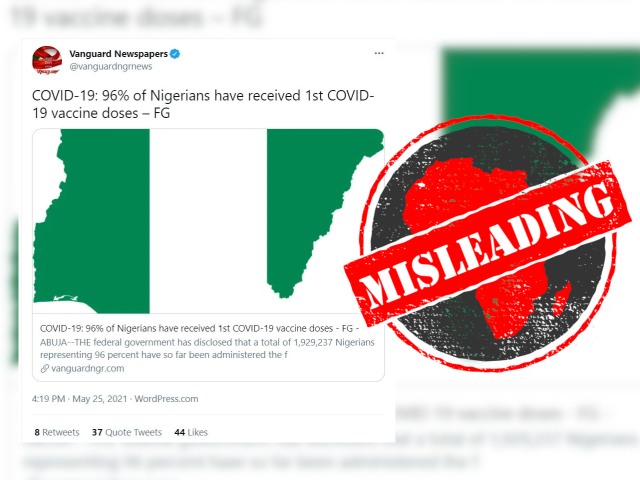A photo shared on a Kenyan Facebook group page in May 2019 show police officers holding men in blue uniforms by their necks.
“Execution of 26 politicians in China due to corruption, what about Kenya?” the caption reads.
According to Amnesty International’s 2018 Global Report on Death Sentences and Executions, China remains the world’s leading executioner.
While there have been reports of Chinese officials being executed for corruption in the past, the photo posted on Facebook doesn’t show this.

A reverse image search reveals that the photo was taken by AFP 15 years ago, in 2004. It shows men convicted of “various crimes” at a “sentencing rally” in China.
“Chinese police show of a group of hardcore convicts at a sentencing rally in the east Chinese city of Wenzhou, 07 April 2004, where 11 prisoners were later executed for various crimes,” reads the caption.
The photo also appears on Getty Images with the same caption.
The post has been debunked by Snopes, AFP Fact Check and Social Media Hoax Slayer. - Dancan Bwire
“Execution of 26 politicians in China due to corruption, what about Kenya?” the caption reads.
According to Amnesty International’s 2018 Global Report on Death Sentences and Executions, China remains the world’s leading executioner.
While there have been reports of Chinese officials being executed for corruption in the past, the photo posted on Facebook doesn’t show this.

‘Hardcore convicts’ being sentenced
A reverse image search reveals that the photo was taken by AFP 15 years ago, in 2004. It shows men convicted of “various crimes” at a “sentencing rally” in China.
“Chinese police show of a group of hardcore convicts at a sentencing rally in the east Chinese city of Wenzhou, 07 April 2004, where 11 prisoners were later executed for various crimes,” reads the caption.
The photo also appears on Getty Images with the same caption.
The post has been debunked by Snopes, AFP Fact Check and Social Media Hoax Slayer. - Dancan Bwire
Republish our content for free
For publishers: what to do if your post is rated false
A fact-checker has rated your Facebook or Instagram post as “false”, “altered”, “partly false” or “missing context”. This could have serious consequences. What do you do?
Click on our guide for the steps you should follow.
Publishers guideAfrica Check teams up with Facebook
Africa Check is a partner in Meta's third-party fact-checking programme to help stop the spread of false information on social media.
The content we rate as “false” will be downgraded on Facebook and Instagram. This means fewer people will see it.
You can also help identify false information on Facebook. This guide explains how.



Add new comment